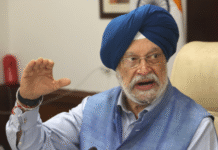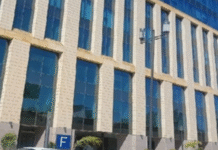Mumbai– A day after the conclusion of the latest round of telecom spectrum auctions, top merchant bankers and research firms said Reliance Jio and Bharti Airtel are best placed today in terms of airwaves holdings and that the focus must now shift to grow the industry pie.
They also said the low appetite for airwaves in the latest round — that saw takers for just 11.6 of the spectrum on the block — was a result of “rational behaviour” of operators.
“We note that the cumulative bids in auctions since 2010 now total $3.5 trillion. For an industry with annual revenue in the vicinity of $1.8 trillion and pre-tax earnings of around $500 billion, these are not small numbers, in our view,” a report of Kotak Institutional Securities said.
“Everything has a context to it and the most critical context, now that the top four operators are hopefully mostly done building their spectrum footprint, is whether the industry pie can become large enough to justify the massive spectrum investments,” it said.
“The industry has placed its bets largely on one variable — data volumes. And a disappointment of that front could mean a long phase of sub-par industry economics,” it said, referring to the state of play for Airtel, Jio, Vodafone and Idea.
The latest spectrum auction was touted as the largest given the quantum of airwaves on the block, but ended after 31 rounds over five days with a total commitment of only Rs 65,789 crore ($9.8 billion), or about 11.6 per cent of the expected Rs 5.66 lakh crore ($8.5 billion).
Stating that the net bid of $9.8 billion was 47 per cent more than its expectation, Goldman Sachs maintained that two players — Airtel and Reliance Jio — just bought more spectrum than what was anticipated, and will require no additional airwaves in the near-to-medium term.
As regards the other players, it said Idea’s spectrum holding was still pretty much inferior to that of Airtel and Jio, while in the case of Vodafone, five circles will remain without any 4G presence, despite considerable improvement in holdings.
“With spectrum auctions done, one risk to the industry is behind us. Companies have spent Rs 658 billion — 65 per cent more than what we estimated, thus increasing leverage. Rising competitive
intensity is the key risk and drives our cautious view on the operators,” said Morgan Stanley.
“With rising competitive intensity, we believe the operators would not have the pricing power and tariffs would continue to be under pressure,” said the report, adding it preferred data enablers and Reliance Communications on asset monetization.
Coming to specific bands, there was unanimity among all the research reports that 700 MHz couldn’t have attracted bids given the high reserve price. Deutche Bank said it was surprised by interest in 2,300 MHz, adding this band has practically has no compatible handsets in India currently.
Credit Suisse appeared to have faulted the overall high reserve price, not just for 700 Mhz.
“Recall that prior to the auctions both operators (Airtel and Idea) had assured that their bids would only be selective: It appears to us competitive compulsions have forced more aggressive bidding,” the report said.
“This also implies bigger amounts likely have been paid by Vodafone and Jio, implying nobody has been spared in the damaging ‘spectrum arms race’. Such high payouts towards spectrum is a unique Indian phenomenon that damages returns immediately,” it said.
“Any potential upside from this will be limited by the entry of large scale operator Jio.”
Bank of America Merrill Lynch said unlike Jio, the top three telcom companies (Airtel, Vodafone and Idea) still lacked a sub-1,000 MHz 4G band, which it felt could lead to the likely purchase of this band at a later date with improved capacity utilisation and data growth.
“With 60 per cent of the spectrum unsold, we expect government to reduce prices of 700 Mhz and 900 MHz in future auctions,” it said. “We now also see a faster consolidation amongst smaller telcom companies given lack of data spectrum.” (IANS)







